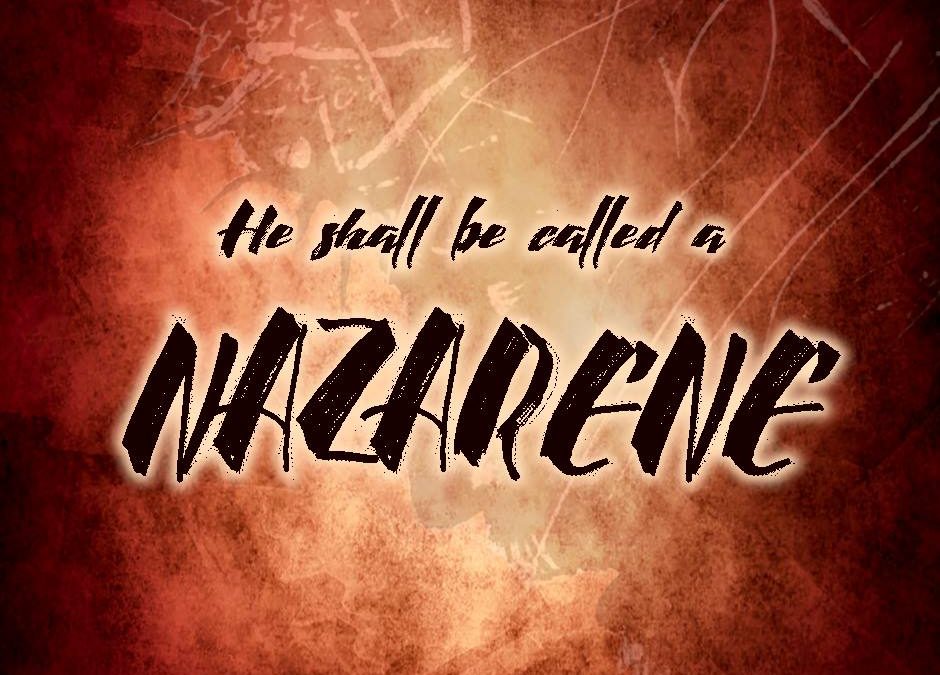Matthew 2:15 is about Israel, not Jesus, it is a historical event

According to Matthew 2:15, when the little boy Jesus, along with Joseph and Mary, fled to Egypt to escape from Herod, this “fulfilled what the Lord had said through the prophet: ‘Out of Egypt I called my son.’ ” But Matthew only quoted the second half of the verse in Hosea. What the prophet really said was this: “When Israel was a child, I loved him, and out of Egypt I called my son.” The verse has to do with Israel, not Jesus, and it is recounting a historical event, not giving a prophecy. And you claim that Matthew was inspired. Hardly!
When Matthew quoted the second half of Hosea 11:1, he took for granted that his Jewish readers would know the whole verse. (Remember that many of Matthew’s intended readers knew large portions of the Hebrew Scriptures by heart, and quoting just part of a verse was a common Jewish practice of the day.) What he was saying was clear: Just as it happened to Israel, God’s national “son,” so also it happened to Jesus, God’s Messianic Son, and the ideal representative of the nation. Both were called out of Egypt in their childhood.
It is very common—often the norm—in the Talmud and Rabbinic literature to cite a key part of a verse, sometimes even a short phrase, even though it is the whole verse that is under discussion. Matthew, a Jew well-versed in the Hebrew Bible, was writing to fellow Jews, also presumably well-versed in their Scriptures, and the last thing he was trying to do was pull the wool over the eyes and ears of his readers.
The very thought of it is ludicrous, since, even if they did not know the whole verse by heart, they could eventually look the verse up or ask someone who had memorized the text. Soon enough, if his citation really was erroneous, someone would have quickly challenged his reading, and within days—or even hours—Matthew would have been exposed and his book of Good News (= Gospel) would have been discarded as an unreliable fraud.
So, the belief, all too common among anti-missionaries, that Matthew tried to trick his readers by only quoting part of the verse is patently absurd.56 To the contrary, “Matthew expects all his readers to understand the primacy of Scripture and the centrality of Christ’s mission in Scripture; but he expects his more sophisticated readers to catch his allusion to Israel’s history as well.”57
Thus, Matthew finds many important parallels between Israel’s formative, early years and the early years and formative ministry of the Messiah, also couching his writing in very Jewish/biblical terms from the opening words: biblos geneseōs, the Greek words being the equivalent of the Hebrew expression seper toledot (as in Gen. 5:1; see the Septuagint [LXX]) or seper yuhasin (the Rabbinic way of introducing a genealogy).
This is not a standard Greek expression but rather a Hebraic one, indicating that his intended audience is clearly Jewish—especially literate Jews. Note also that Matthew does not follow the LXX here, which translates Hosea 11:1b with “children” rather than “son.” Rather, he translates directly from the Hebrew.58
As we continue to read, we notice in the opening chapters that there are several parallels between both Moses and the Messiah as well as Israel and the Messiah (this is called “Messianic typology”):
- There was an edict to kill all the Israelite baby boys at the time Moses was born (Exod. 1:15–22), just as there was an edict to kill all the Jewish baby boys in Bethlehem at the time Yeshua was born (Matt. 2:16–18).
- Israel in its infancy went into Egypt, just as Jesus did (Gen. 46:1–7; 47:27—Israel; Exod. 4:19—Moses; Matt. 2:13–15—Jesus), and then both were called out of Egypt back to the Promised Land (Exod. 3:8; Matt. 2:21; note also the parallels between “those who were seeking your life are dead” in Exod. 4:19 [nrsv]—Moses to go into Egypt; Matt. 2:20—Joseph to bring Jesus out).
- “By leaving ‘at night,’ Joseph’s family made their route of departure impossible to trace; the language might also evoke Jewish readers’ memory of Exodus 12:31.”59
- Israel crossed the Jordan River while Jesus was immersed in the Jordan River (Joshua 3; Matt. 3:13–15; in both cases, these were “rites of passage”; it is also possible that the Jordan parallels the Red Sea).
- Israel was called God’s son, and Jesus was called God’s Son (see, e.g., Exod. 4:22; Matt. 3:17; 17:5).
- Israel was tested for forty years in the wilderness, while Jesus was tempted for forty days in the wilderness, actually quoting the Book of Deuteronomy three times when rebuking Satan (Matt. 4:4, quoting Deut. 8:3; Matt. 4:7, quoting Deut. 6:16; Matt. 4:10, quoting Deut. 6:13; remember that Deuteronomy was the book composed at the end of Israel’s wilderness wanderings).
- Just as Israel received the Torah, God’s authoritative instruction, at the foot of Mount Sinai, so also, when Yeshua began to give the people his holy instruction, he too ascended a mountain and gathered his disciples there (see Matt. 5:1–2).
All this indicates just how deeply this period of Israel’s history was in Matthew’s mind: Israel going into Egypt, Moses’ birth, Israel coming out of Egypt, receiving the Law, being tested in the wilderness, crossing the Jordan. Therefore, with good reason, he looked to Hosea 11:1 as a prophetic parallel to the early years of the Messiah: As it happened to Israel, God’s son, so also it happened to the Messiah, God’s Son. As professor Craig Keener summarized:
Matthew builds almost every paragraph from the genealogy to the Sermon on the Mount around at least one text in the Old Testament, explaining some event of Jesus’ life from Scripture. In context Hosea 11:1 refers plainly to the Israelites leaving Egypt in the exodus; Matthew applies this text to Jesus because Jesus epitomizes and fulfills Israel’s history (Matt. 1:1).60
Amazingly, anti-missionary author Michoel Drazin claims that Matthew not only misquoted Hosea here, but that he borrowed the historical account from the life of Krishna! He writes: “When Krishna was born, his father is said to have fled with him from the governor, who sought the infant’s life.… The New Testament transferred this legend to Jesus.”61
While such claims are so bizarre as to be laughable, they point to the extremely skewed view that some ultra-Orthodox Jews (and many anti-missionaries) have about Yeshua and the New Testament. Their level of mistrust and suspicion is extremely high, to put it mildly. As we have seen in the case of Matthew’s quotation of Hosea, neither the mistrust nor suspicion are merited in the least.
To the contrary, those who take the time to explore the spiritual riches of Matthew’s writings will not be disappointed, and they will find their intellects enriched as well.62 Suffice it to say that you will be on infinitely more solid ground if you trust Matthew than if you trust the anti-missionaries.
56 I believe that some of these wrong anti-missionary concepts are based on contemporary ignorance of the Tanakh, hence leading them to think that Matthew was misleading and disingenuous. In other words, if his readers really didn’t know their Bibles (just as many Jews and Christians today don’t know the Scriptures well), he could “pull a fast one” on them by taking a verse totally out of context, slicing it in half so as to alter radically its meaning, and then using it to “prove” that it referred to Jesus.
57 Craig S. Keener, A Commentary on the Gospel of Matthew (Grand Rapids: Eerdmans, 1999), 109, my emphasis. See ibid. for further parallels in Matthew between Israel and the Messiah, including the important observation: “Matthew emphasizes Jesus’ solidarity with Israel elsewhere as well (cf. 1:1; 4:2); like the Messianic servant (Is 49:5–7; 52:13–53:12) who fulfills the mission Israel had failed (Is 42:18–22), Jesus fulfills Israel’s call (cf. Is 42:1–4; 43:10; 49:1–3).
But like Stephen in Acts 7, Matthew emphasizes another point as well: God declares Jesus’ sonship in his return from Egypt, i.e., outside the Promised Land (Patte 1987: 38). Jesus is not for Judea alone, but for all peoples.”
58 As noted by Keener, Matthew, 108. Bruce Chilton also points out that the Targum renders Hosea 11:1 with, “Out of Egypt I have called them sons,” which, he notes, “corrects the passage away from the singular application of ‘Out of Egypt I have called to my son,’ ” as cited correctly by Matthew. See Chilton, “From Aramaic Paraphrase to Greek Testament,” in Evans and Sanders, From Prophecy to Testament, 38. Cf. further, below, 5.4.
59 As noted by Craig S. Keener, The IVP Bible Background Commentary, New Testament (Downers Grove, IL: InterVarsity, 1993), 50 (henceforth cited as IVPNT).
60 Ibid.
61 Michoel Drazin, Their Hollow Inheritance: A Comprehensive Refutation of the New Testament and Its Missionaries (Jerusalem: Gefen, 1990), 41. Cf. also Eric V. Snow, A Zeal for God Not according to Knowledge: A Refutation of Judaism’s Arguments Against Christianity (Lincoln, NE: Writers Club Press, 2003), 337–343, for refutation.
62 In a private email, Craig Keener also brought to my attention the larger context of Hosea 11, which culminates in verses 10–11 with the promise of a future, new exodus, suggesting that this also may have been a factor in Matthew’s citation of Hosea 11:1.
Brown, M. L. (2007). Answering Jewish objections to Jesus, Volume 4: New Testament objections. (21). Grand Rapids, Mich.; Baker Books.



![Born to a virgin? just one of several pagan myths [Answered] 10 Born to a virgin? just one of several pagan myths [Answered]](https://difa3iat.com/en/wp-content/uploads/2023/07/pwKhu-e1688385358129.jpg)